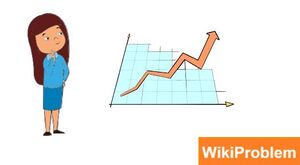What are Index Funds and How It Works: Difference between revisions
From Wiki Problem
Wikiproblem (talk | contribs) (Created page with "Index funds are individual stock portfolios that mimic the behavior of a global financial benchmark. They imitate a segment of the financial markets or in the overall industry...") |
Wikiproblem (talk | contribs) No edit summary |
||
| (One intermediate revision by the same user not shown) | |||
| Line 1: | Line 1: | ||
Index funds are individual stock portfolios that mimic the behavior of a global financial benchmark. They imitate a segment of the financial markets or in the overall industry. | Index funds are individual stock portfolios that mimic the behavior of a global financial benchmark. They imitate a segment of the financial markets or in the overall industry. | ||
[[File:What are Index Funds and How It Works.jpg|frameless|right]] | |||
== What is Index ? == | == What is Index ? == | ||
| Line 25: | Line 28: | ||
* Global index funds are based on indexes that are not limited to any country or stock market, allowing investors to gain exposure to international corporations in emerging nations and beyond. | * Global index funds are based on indexes that are not limited to any country or stock market, allowing investors to gain exposure to international corporations in emerging nations and beyond. | ||
== Earnings-based Index Funds == | === Earnings-based Index Funds === | ||
* These are index funds that have been based on profits, and they are divided into two categories like development and price. | * These are index funds that have been based on profits, and they are divided into two categories like development and price. | ||
Latest revision as of 17:54, 27 October 2021
Index funds are individual stock portfolios that mimic the behavior of a global financial benchmark. They imitate a segment of the financial markets or in the overall industry.
What is Index ?
- An index is a method of tracking and analyzing the behavior of a collection of assets or commodities on the market.
- Factors are being used to assess statistics such as inflation and interest rates, among other things, and they're frequently utilized to provided comprehensive or critical success factors for the market segment being emulated.
- Consider it a little architectural scale model of a full-scale structure.
- This small-scale model represents a section.
Types of Index Funds
Before we dive into which kind of investor/s must invest in Index funds, let’s skim through the different types of Index funds.
Broad market index funds
- Broad market funds mimic a large section of the stock market.
- Index funds like this generally have the least expenditure while also being incredibly tax-efficient, making them popular with investors who want a large variety of stocks and bonds
Market Capitalization Index Funds
- Market capitalization is basically the market value of a company represented in a dollar amount.
- Market capitalization funds give weightage to different company stocks based on their market cap.
Multinational Index Funds
- Global index funds are based on indexes that are not limited to any country or stock market, allowing investors to gain exposure to international corporations in emerging nations and beyond.
Earnings-based Index Funds
- These are index funds that have been based on profits, and they are divided into two categories like development and price.
- Value indexes include stocks of firms that are trading at a lower cost relative to how far the company is generating
- And development indexes include company stocks that will make a profit faster than the others in the marketplace.
How Index Funds Works ?
- Index funds are a sort of mutual fund that is different from the others.
- A mutual fund is a type of investment instrument that generates revenue from multiple funds that invest it in commodities such as stocks and bonds.
- A fund leader is the individual in capable of designing mutual fund actually purchase decisions. The goal of an index fund is to replicate the performance of a specific stock market index.
- A market index is a fictitious investment portfolio that reflects a market segment. The fund manager's role is to change the fund's positions when any index changes, because an index fund tries to mimic a stock index.
Benefits of Index Funds
Index funds offer extremely low expense ratios, with some as low as 0%. Expense rates for broad market index funds, such as those following are typically under 0.05 percent.

